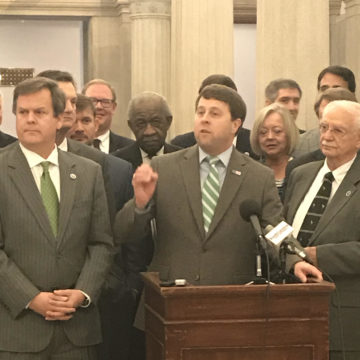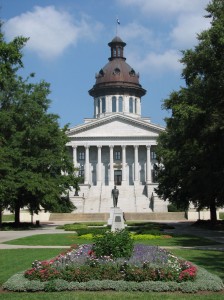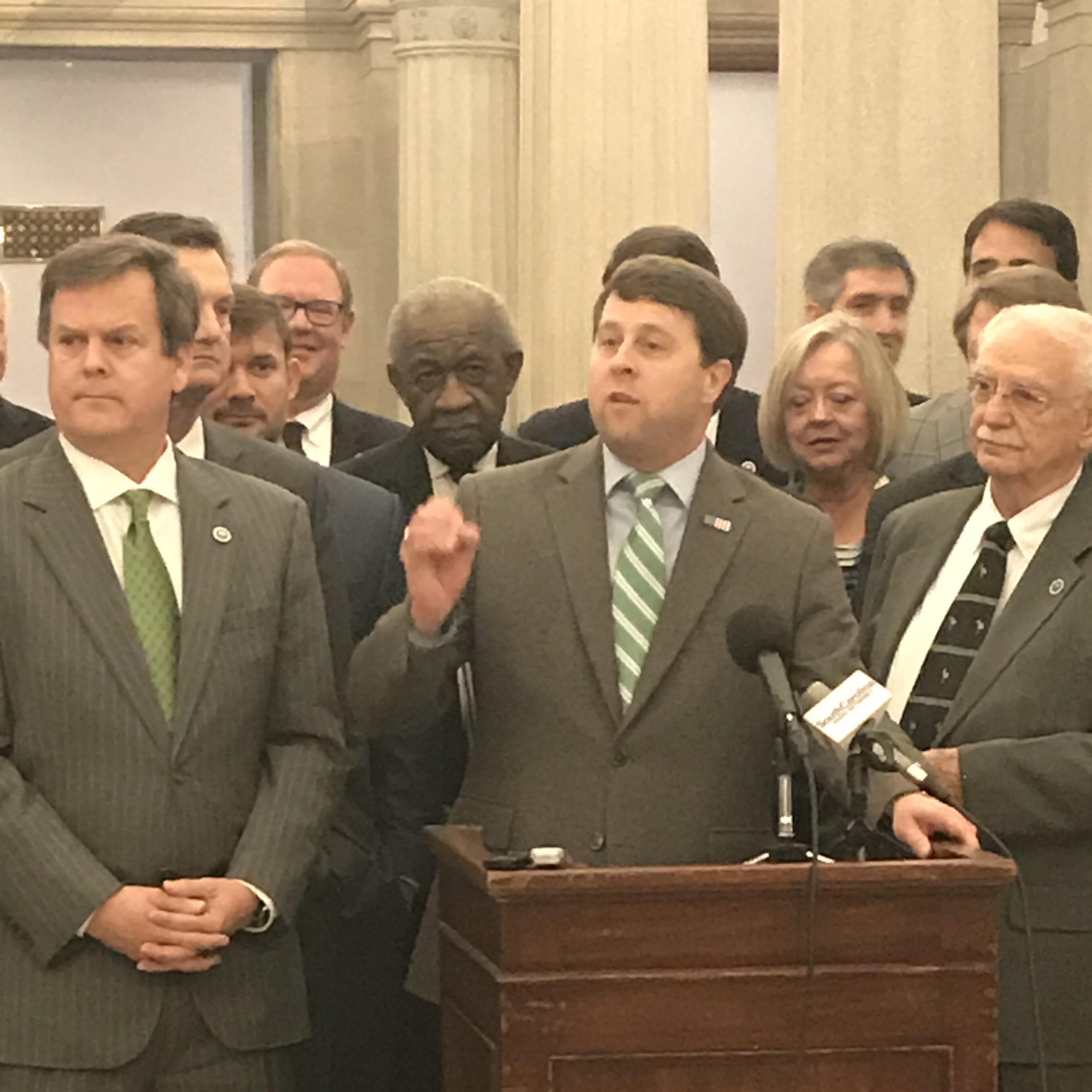Update, May 16, 2019: Governor McMaster signed the South Carolina Energy Freedom Act into law.
Update, Feb. 22, 2019: The bill has passed the House and is moving to the Senate. Please note that language in the bill has been revised since the blog post below was published. Much, though not all, of the content below remains in the current version of the bill.
Update, Jan. 17, 2019: Representative Peter McCoy (R – Charleston) has introduced a companion bill in the House – the South Carolina Energy Freedom Act (H. 3659).

On the first day of the South Carolina 2019 legislative session, Senator Tom Davis (R – Beaufort) introduced the “Clean Energy Access Act,” (S. 332) which seeks to build into the state’s energy sector more free-market competition, lower costs for customers, and provide better environmental protection.
The Clean Energy Access Act has several sections, each offering solutions to different problems facing South Carolina’s energy system, including reasonable electric rates for customers, fair compensation for solar producers, better opportunities for low income families to participate in solar programs, and ensuring more free market competition to ensure lower power prices.
Here are a few key takeaways from the bill:
Provides reasonable electric rates for customers
The bill would enshrine in law customers’ rights to reasonable, and easy-to-understand bills and the ability to utilize cost-saving measures, such as energy efficiency improvements or rooftop solar panels, so that they are not infringed upon by discriminatory rates or onerous charges.
This is important because utilities are currently employing the strategy of hiking customers’ mandatory fees to compensate for declining electricity sales in the era of rooftop solar and increasingly efficient household appliances. For example, Duke Energy is currently proposing to triple its customers’ mandatory fee so that households would owe about $336 per year before even flipping on the light switch. Such high fees disproportionately impact low energy users, such as low-income families, seniors, and solar customers, and reduce the incentive to save money by using less energy.
The Clean Energy Access Act would protect consumers from such undue charges and keep customers in control of their utility bills.

Establishes a long-term solution for solar customers
Act 236, passed in 2014, kickstarted South Carolina’s solar industry, leading to thousands of customers installing rooftop solar systems and cutting their energy bills, and contributing greatly to the growth in employment of the solar industry to more than 3,000 new professional jobs in the state. Act 236, as a first step into the solar market, capped the growth of customer-owned solar to 2% of a utility’s total capacity. However, due to the huge popularity of solar, the 2% cap came much sooner than anticipated, with Duke Energy Carolinas hitting its 2% cap last summer, and SCE&G expected to hit its 2% the cap early this year. Without a successor program in place, customers will be left out in the cold with extremely limited options for going solar, and solar jobs will disappear.
The Clean Energy Access Act would establish a long-term policy of providing fair compensation to solar customers for the energy they produce. The policy proposed in S. 332 does not compensate solar customers as much as they have been compensated under Act 236, however we consider it a fair solution for the long term.
Sets fair rules for low-cost large-scale solar
Utility-scale solar energy has become the least expensive source of energy in much of the country. Developing such solar farms has multiple benefits, including lower bills for customers, economic development and job growth in rural areas where the solar farms are sited, and environmental benefits of pollution-free power. Both Duke Energy and SCE&G have contracted for significant expansion of such solar and earned designation as SunRisers in our inaugural Solar in the Southeast annual report. Yet after this initial round of solar farms comes online, utility policies may tend to stifle further development across all South Carolina utilities’ territories, leading to missed opportunities for customer savings.
Independent power producers, such as solar development companies, can often provide power for less cost than the utility would otherwise have to spend on generating it, so The Clean Energy Access Act would ensure that under such circumstances, utility policies would provide terms and conditions for the purchase of such low-cost power that are commercially reasonable and that allow the the independent companies sufficient ability to finance the projects.

Allows major employers cost-saving options
There has been a trend in recent years of major companies outside of South Carolina purchasing low-cost electricity directly from renewable energy developers. This allows the companies to lock in longterm savings, mitigate the risk of fluctuating energy costs, and claim the environmental benefits of renewable energy. However such direct purchasing of energy is not allowed in South Carolina.
The Clean Energy Access Act would establish a voluntary program for utilities to act as facilitators of renewable energy purchases between large companies and renewable energy developers, thus providing more flexibility and cost-saving options to our state’s largest employers.
Creates a Neighborhood Community Solar Program for low-income families
The Clean Energy Access Act would establish a program that expands access to solar energy to low-income communities and customers. Specifically, the program would offer customers whose household income is less than 200% of federal poverty level the ability to subscribe to the output of a 5-kilowatt portion of a nearby solar farm, with the actual generation of the customer’s portion offsetting that portion of their monthly electricity bill. Additionally, nonprofit organizations can opt to host a community solar farm on their property and be eligible to subscribe to the output of the farm. Community organizations that help identify and enroll customers would be compensated for their work and utilities that achieve high participation rates in their community solar program would be allowed additional compensation as well.
Modernizes utility planning
Utilities in South Carolina currently have no obligation to include low-cost energy efficiency or renewable energy in their future resource planning, which often results in missing opportunities for lowering costs for customers and capturing environmental benefits.
The Clean Energy Access Act would ensure that when utilities create their “integrated resource plans,” they include consideration of efficiency, renewables, closure of uneconomic/inefficient assets, while prioritizing affordability, reliability, and other measures of quality utility service.
Increases free-market competition
The Clean Energy Access Act would ensure that before building any major utility facilities (greater than 75 megawatts), utilities would need to host a competitive solicitation, which would allow developers of all types of energy sources (i.e. solar, wind, batteries, natural gas, etc.) to submit bids for consideration in a transparent process overseen by a third-party. Such a provision was adopted last month by SCE&G, Dominion Energy, and the Public Service Commission (PSC), however this section in The Clean Energy Access Act would encompass other utilities and extend SCE&G’s participation in this type of procurement for a longer duration than the PSC ordered last month. Imagine if such a protection had been in place before SCE&G and Santee Cooper began pouring money into the $9 billion V.C. Summer boondoggle project!
Overall, The Clean Energy Access Act helps benefit customers, protect the environment, create and sustain jobs, and build South Carolina’s energy economy to 21st century standards, all while letting the free-market work. As such, clean energy advocates, including SACE, have called for passing legislation such as S. 332 by the 100th day of 2019, as part of the 100 Day Clean Energy Agenda. Opportunity is knocking and the clock is ticking.



